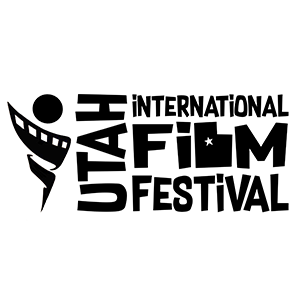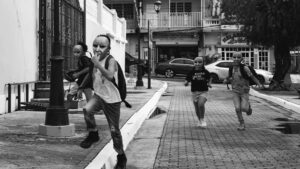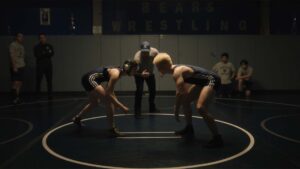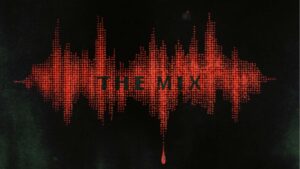The Reverse Diaries

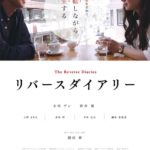
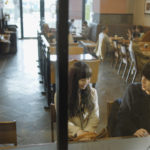
The Reverse Diaries is directed by Shin Sonoda and follows a ghost-writer named Rihito, who has based his career on writing for others. He’s clearly talented, yet he hasn’t attempted to create anything for himself.
One day, as he’s leaving from working at a coffee shop, he is awkwardly approached by Saki, a charming, quirky girl, who claims she is being followed by somebody and needs Rihito to cover as her “boyfriend.” He obliges and plays along with Saki’s request and is somewhat smitten by her. They run into each other a couple more times after that, and it is clear that Saki is feeling the same way about him. However, these encounters may not be just coincidence; they may, in fact, be part of something much bigger.
As the story progresses, Rihito and Saki’s relationship starts to grow, and they encourage one another to follow their passions. For Rihito,it’s to follow his own voice in writing, and for Saki, it’s to follow her aspiration to become an actress.
Both seem to have a great “500 Days of Summer” dynamic that keeps you invested in their relationship. Things take a sudden and dark turn, though, after a turning point in the relationship unfolds and Saki attempts suicide. This motivates Rihito to try and find anything to explain why, leading him to her diary.
I don’t want to expand on what he finds in her diary; however, the narrative in this moment changes from Rihito’s story to Saki’s. We discover that her meeting with Rihito was planned so she could learn more about Rihito. We also get a closer look into her relationship with her sister, Aya, a shy girl who wishes to be out of her sister’s shadow. We then delve into Aya’s perspective and see the lengths she’s willing to go to sabotage Saki relationships. All these storylines converge in the third act as the story shifts from being a light-hearted rom-com to a thriller that explores redemption and rebirth.
What Shin Sonoda has done so well with this film is storytelling. The genre bends, going from being a somewhat comedic-romance to a revenge story that explores desperation, jealousy, and manipulation. It’s a story about being reborn and being able to move on from tragedy and loss. It deliberately withholds information, being nonlinear in its storytelling, and invites speculation on the characters’ motives until the very end. I personally love this type of storytelling and The Reverse Diaries execute it very well.
The performances are all unique, and the characters are well-realized. The standout performance for me was Iku Arai, who plays Saki. She has a particularly great moment when auditioning for a role and is required by the casting directors to cry on command. I also enjoyed the B-story with Aya, played by Marie Ono.
The cinematography is sleek and modern. The locations and settings all seem real and grounded. Overall this is a very technically sound film, aside from issues I had with the camerawork. In the dialogue scenes between the characters, I feel that it could have been more active with focusing between the actors. With the depth of the shots, when one character is speaking to the other, I expected to see the camera focusing between the two to keep your eyes on who is talking. However, I found while watching that the focus lingered on the first person speaking, and left it there. Was it intentional? I’m not sure, and that’s why it bothered me, I suppose.
Additionally, with foreign films, the English translation left something to be desired. It’s hard to discern if the dialogue was well-crafted when it seems like the translation wasn’t accurate. This isn’t an issue with the film, more something I hope can be resolved when it comes to foreign films’ subtitles.
Overall, The Reverse Diaries is a well-crafted macabre film that explores deep emotions, and offers redemption in flawed, relatable characters. I would recommend this film to anyone who enjoys a mystery mixed with intriguing character drama.
